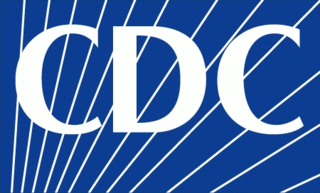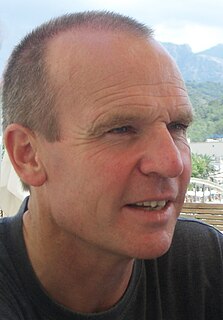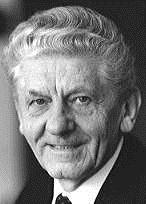
The Centers for Disease Control and Prevention (CDC) is the leading national public health institute of the United States. The CDC is a United States federal agency under the Department of Health and Human Services and is headquartered in Atlanta, Georgia.

Tuberculosis (TB) is an infectious disease usually caused by Mycobacterium tuberculosis (MTB) bacteria. Tuberculosis generally affects the lungs, but can also affect other parts of the body. Most infections do not have symptoms, in which case it is known as latent tuberculosis. About 10% of latent infections progress to active disease which, if left untreated, kills about half of those affected. The classic symptoms of active TB are a chronic cough with blood-containing mucus, fever, night sweats, and weight loss. It was historically called "consumption" due to the weight loss. Infection of other organs can cause a wide range of symptoms.

The World Health Organization (WHO) is a specialized agency of the United Nations that is concerned with international public health. It was established on 7 April 1948, and is headquartered in Geneva, Switzerland. The WHO is a member of the United Nations Development Group. Its predecessor, the Health Organization, was an agency of the League of Nations.
James (Jim) Chin is a public health epidemiologist. He works in public health surveillance and prevention of communicable diseases, particularly AIDS.

The Pan American Health Organization (PAHO) is an international public health agency working to improve health and living standards of the people of the Americas. It is part of the United Nations system, serving as the Regional Office for the Americas of the World Health Organization and as the health organization of the Inter-American System. It is known in Latin America as the OPS or OPAS.
G. Balakrish Nair is an Indian microbiologist. At present, he is the Ag. Regional Adviser, Research Policy and Cooperation Unit, Department of Communicable Diseases, World Health Organization. Before joining WHO, he was the Executive Director of Translational Health Science and Technology Institute (THSTI), Faridabad, NCR, India. Before joining THSTI, he was working in NICED as the Director. He has also served as the director of Laboratory Sciences Division at the International Center for Diarrhoeal Diseases Research,, Dhaka, Bangladesh.

World Tuberculosis Day, observed on 24 March each year, is designed to build public awareness about the global epidemic of tuberculosis (TB) and efforts to eliminate the disease. In 2012, 8.6 million people fell ill with TB, and 1.3 million died from the disease, mostly in low and middle-income countries.
See also Universidad Santo Tomás de Aquino
Mario C. Raviglione is Professor at the University of Milan, Italy, where, starting in March 2018, he directs the new Global Health Centre aiming at pursuing didactic, research, policy analysis and communication in the field. Part of his activities are devoted to teaching global health principles to under-graduate medical students, making the University of Milan the first in Italy, and one of the pioneers world-wide, introducing global health as a module among the required courses. In 2019, he was also appointed Professeur Titulaire at the Global Studies Institute (GSI), Université de Genève, Suisse. Through the GSI, he collaborates closely with the Institute of Global Health. Previously, between 2003 and 2017, he was Director of the Global Tuberculosis Programme at the World Health Organization (WHO). He graduated in Medicine from the University of Turin in 1980 and then trained in internal medicine and Infectious Diseases at Cabrini Medical Center in New York City and at Beth Israel Medical Center in Boston where he was a Harvard University Clinical Fellow in Medicine and specialised in AIDS. Back in Europe, Raviglione joined WHO in 1991 as a Junior Professional Officer, and spent a few years working on TB and AIDS, TB epidemiology in Europe, and anti-TB drug resistance surveillance and response. In the mid-1990s, he set up both the WHO global drug resistance surveillance project and the WHO global TB surveillance and monitoring systems. Among his major achievements are the contributions to the development of the WHO's DOTS Strategy in 1995, and the direction of the development of both the Stop TB Strategy in 2006 and the End TB Strategy in 2014. During his years at WHO he worked with, and visited, more than 50 countries supporting their TB care, prevention, control and research activities. His research work has resulted in over 350 scientific articles and chapters on the topics of infectious diseases, HIV/AIDS, TB, and global health, including the TB chapters in the last eight editions of Harrison's Principles of Internal Medicine. He is editor of the 3rd and 4th edition of "Tuberculosis - A comprehensive international approach", a multi-author book, and associate editor of other books on public health, infectious diseases and tuberculosis. He directed the team that developed the book “Systematic screening for active tuberculosis – Principles and recommendations”, awarded by the British Medical Association as "Highly Commended Book" for Public Health in 2014 .He is among the top 10 most cited authors in the TB field. His h-index is 98 and 82 (Scinapse) and his work has been cited over 43000 times. He is also among the top 25 Italian epidemiological scientists and the top 100 Italian scientists in general. As an expert in TB, he has worked as a teacher or visiting professor at Johns Hopkins University, University of Geneva, University of Modena and Reggio Emilia, and University of Pavia. He is currently visiting professor at the University of Brescia and has recently lectured at major universities including Harvard, Mc Gill and Sydney. He participates in a variety of scientific and advisory committees, including those of the TB Alliance, Doctors with Africa CUAMM, BE Health Association, and Fondazione 3Bi.. In 2017 he has been asked to become member of the Lancet Commission on TB. During 2015-2017 he conceived and co-organised, with WHO and the Russian Federation Ministry of Health, the first Global WHO Ministerial Conference on TB in the Sustainable Development Era, held in Moscow on 16-17 November 2017, and his team worked towards ensuring that TB is raised in the international political agenda through the United Nations General Assembly high-level meeting on TB that was held in 2018.

Christopher Dye FRS, FMedSci is a British biologist, epidemiologist and public health specialist who has held positions at the London School of Hygiene and Tropical Medicine, the World Health Organization, Gresham College London and the University of Oxford.

Tuberculosis is a major public health problem in China. China has the world's third largest cases of tuberculosis, but progress in tuberculosis control was slow during the 1990s. Detection of tuberculosis had stagnated at around 30% of the estimated total of new cases, and multidrug-resistant tuberculosis was a major problem. These signs of inadequate tuberculosis control can be linked to a malfunctioning health system. The spread of severe acute respiratory syndrome (SARS) in 2003, brought to light substantial weaknesses in the country's public health system. After the government realized the impact that the SARS outbreak had on the country, they increased leadership in their health department. After the SARS epidemic was brought under control, the government increased its commitment and leadership to tackle public health problems and, among other efforts, increased public health funding, revised laws that concerned the control of infectious diseases, implemented the world's largest internet-based disease reporting system to improve transparency, reach and speed, and started a program to rebuild local public health facilities and national infrastructure.

Mirta Roses Periago is an Argentine epidemiologist who served as Director of the Pan American Health Organization (PAHO) until January 31, 2013.
The Dominican Republic has a 0.7 percent prevalence rate of HIV/AIDS, among the lowest percentage-wise in the Caribbean region. However, it has the second most cases in the Caribbean region in total, with an estimated 46,000 HIV/AIDS-positive Dominicans as of 2013.
The Stop TB Partnership was established in 2000 to eliminate tuberculosis as a public health problem. Its 1500 partner organizations include international, nongovernmental and governmental organizations and patient groups. The secretariat is based in Geneva, Switzerland and, since 2015, has been administered by UNOPS. Previously it was hosted by the World Health Organization.

Karel Styblo, MD, was born in Czechoslovakia. Internationally recognized for his work with tuberculosis (TB), he was a medical advisor to the Royal Netherlands Tuberculosis Association, and was named director of the International Union Against Tuberculosis and Lung Disease (IUATLD) in 1979. He is known as the "father of modern TB epidemiology" and the "father of modern TB control".

Franklin Marshall Matthews White is a Canadian public health scientist focused on capacity building for international and global education, research and development. He advocates:
"Public health...must not be left to the international community to define; it is...the responsibility of the countries themselves to define their priorities. The global agenda should be viewed as complementary at best."
Jon Andrus, an American physician, epidemiologist and immunization specialist, is the former deputy director of the Pan American Health Organization (PAHO).
Malaria Day in the Americas is commemorated annually on November 6 to promote awareness, recognize past and current efforts to prevent and control malaria in the region of the Americas, build commitment, and to mobilize action to advance malaria goals and targets as the region works towards elimination. Awareness of this disease is very important in the region of the Americas, where an estimated 120 million people in 21 endemic countries are at risk of malaria. In 2012, there were 469,000 confirmed malaria cases in the region with 108 deaths. Nonetheless, declining incidence of disease and malaria-related mortality has led to low prioritization of malaria on national health agendas in the Americas.

Soumya Swaminathan is an Indian paediatrician and clinical scientist known for her research on tuberculosis. On 3 October 2017, she has been appointed as the Deputy Director General of Programmes (DDP) at the World Health Organization by the Director General Tedros Adhanom Ghebreyesus. Most recently, she has been working for the Indian Ministry of Health and Family Welfare and Director General of the Indian Council of Medical Research, the apex body in India for the formulation, coordination and promotion of biomedical research.









